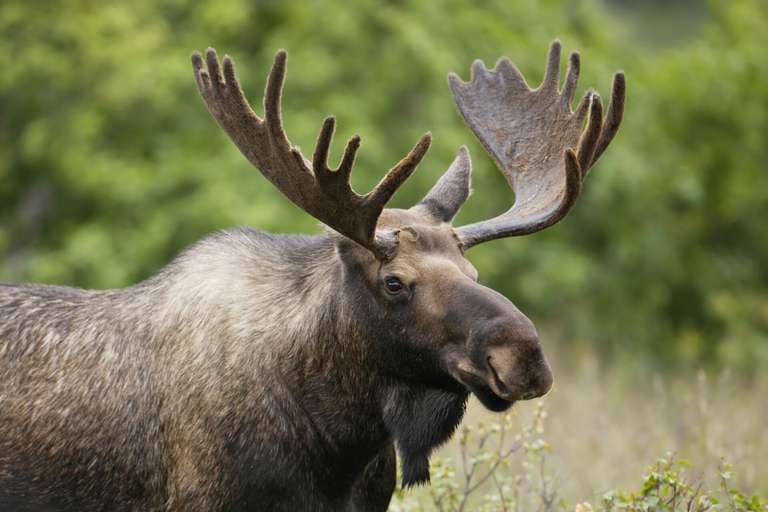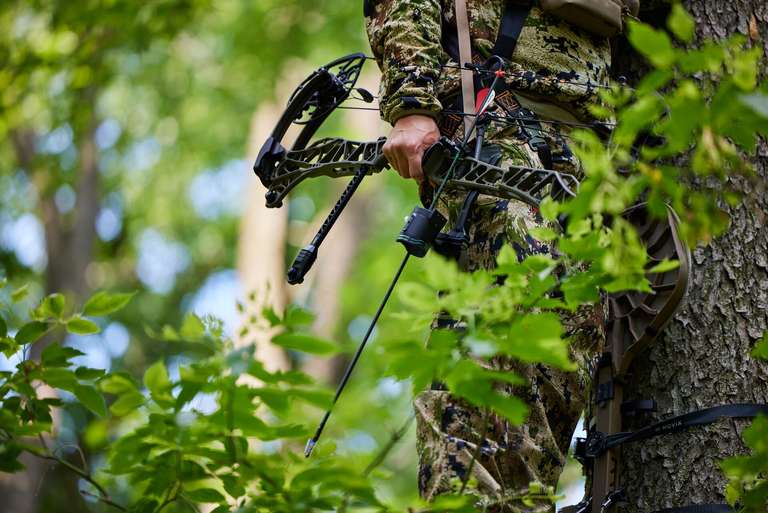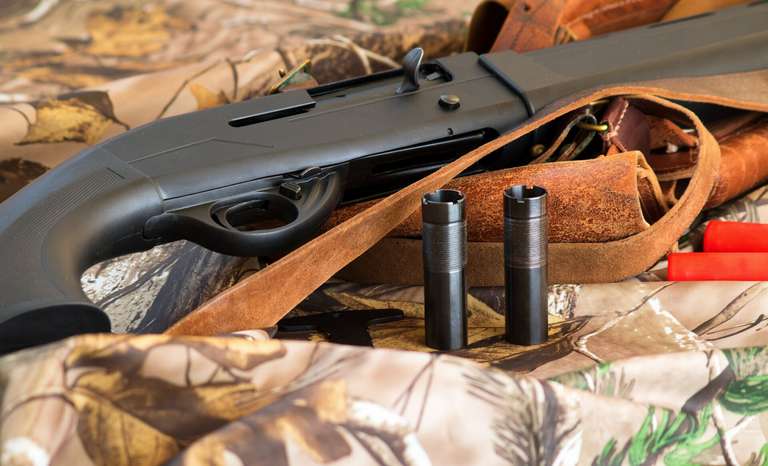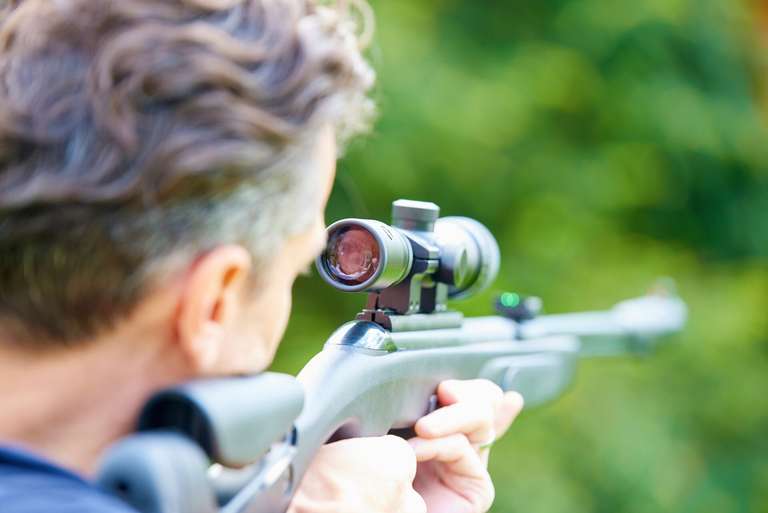Can Deer Smell Bug Spray?

Few things can ruin a whitetail or mule deer hunt faster than a swarm of mosquitoes or black flies. Every early-season hunter who’s sat in a ground blind or hunted from a tree stand knows that bugs can be brutal.
While applying copious amounts of insect repellent to your clothes and exposed skin can keep the bugs at bay, it raises a legitimate concern: Can deer smell bug spray?
Let’s take a closer look at how a deer’s sense of smell works, how these savvy woodland creatures react to insect repellents and Thermacell devices, and what you can do to stay bug-free this season.
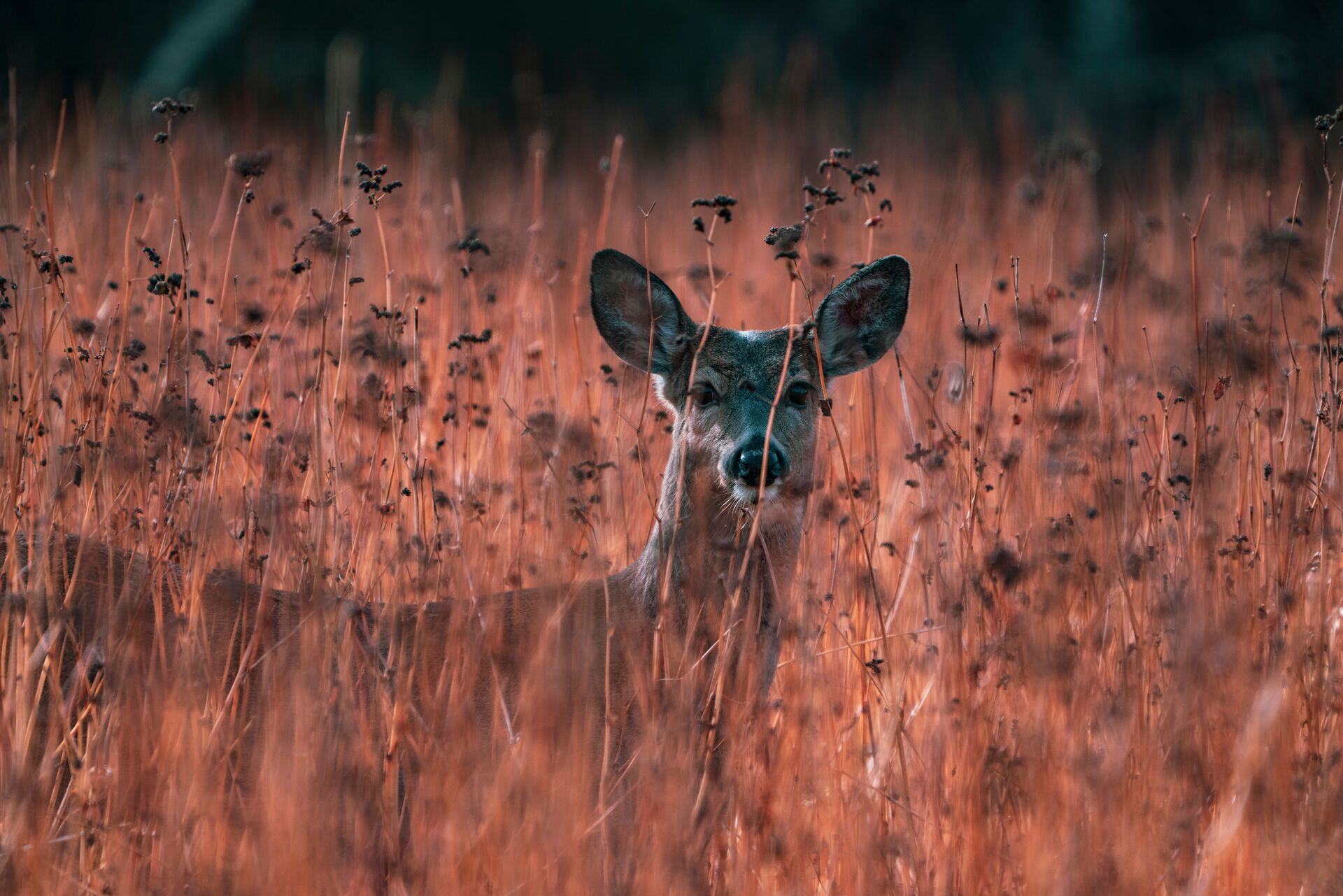
Deer Have an Incredible Sense of Smell
A deer’s nose is its primary survival tool.
A deer’s sense of smell is used to detect potential danger, find food, identify other deer, and recognize familiar areas. A white-tailed deer has approximately 300 million olfactory receptors in its nose — more than 50 times more than we humans do. Under ideal conditions, a deer’s finely tuned sense of smell can detect human scent from several hundred yards away.
If you’ve ever been overwhelmed by someone’s perfume or cologne, imagine that’s how a deer reacts when it picks up a foreign smell in its environment. These animals can detect subtle chemical signatures from body odor, laundry detergents, deodorants, and, yes, insect repellents.
Can Deer Smell Bug Spray?
Yes, deer can detect the scent of bug spray.
However, the distance at which they can detect your insect repellent depends on the chemicals it contains.
DEET (N,N-diethyl-meta-toluamide) is a synthetic chemical commonly used in insect repellents. While effective at deterring bugs, DEET does not emit a natural smell. When a deer catches a whiff of this new odor, it will often associate it with potential danger and avoid the source or remain on high alert.
Some hunters have reported success using lower-concentration, unscented insect repellents that do not contain added fragrances or synthetic chemicals. While not foolproof, these sprays and lotions may be more difficult for deer to detect.
Regardless of which insect repellent you choose, always keep the wind in your favor. While deer may not always bolt at the first sniff of your bug spray, they will become more cautious and jumpy.
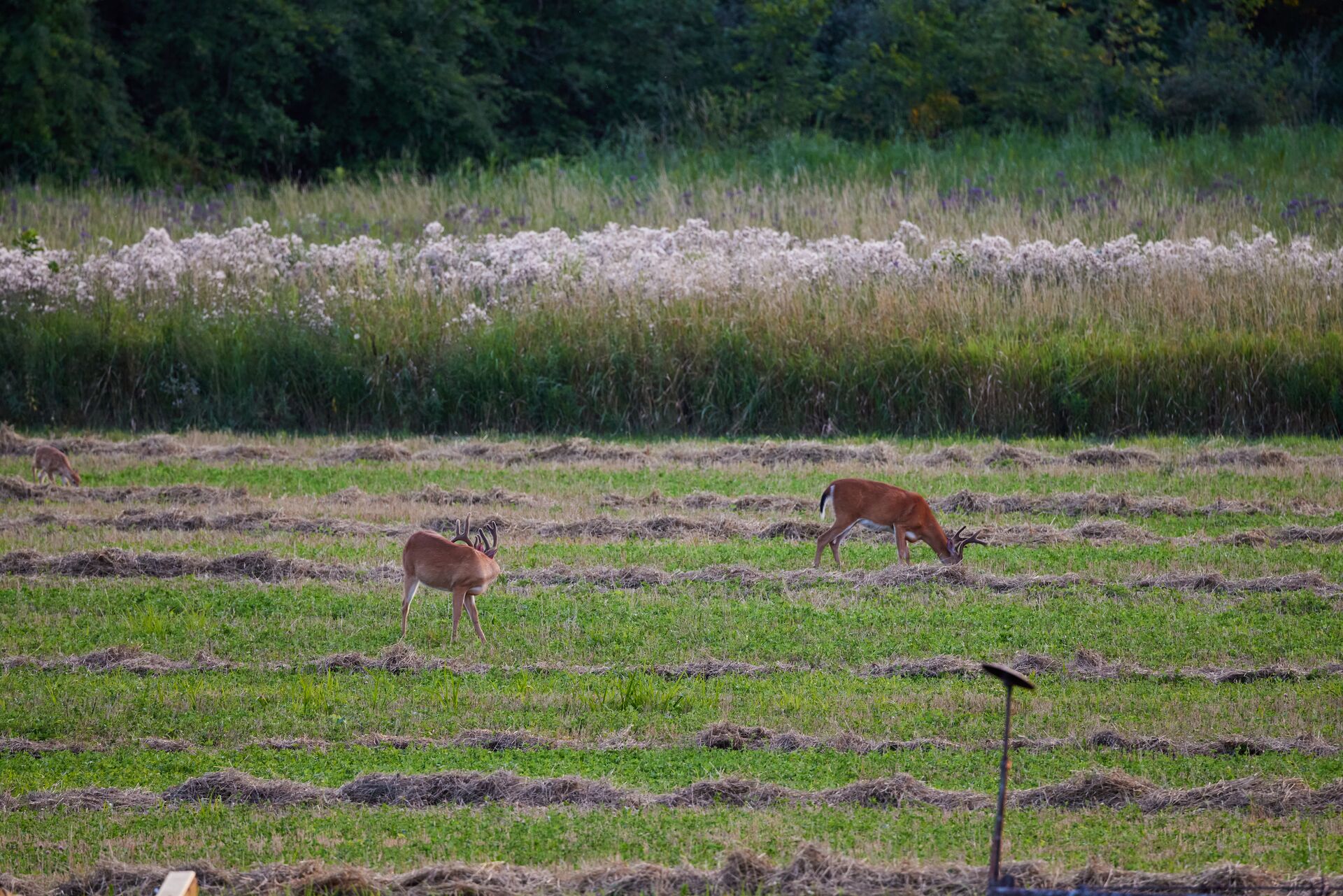
What Smells Repel Deer?
Deer are sensitive to a wide range of scents that trigger their instinct to flee.
What smells repel deer? Top offenders include:
- Perfumes
- Deodorants
- Detergents
- Gasoline
- Exhaust fumes
Deer are also not fans of citronella. Citronella is commonly used in bug-deterring candles and some insect repellents. Gardeners also use citronella oils to deter deer from their gardens and fruit trees.
Citronella’s strong, lemony scent is unappealing to deer and is often associated with a danger signal.
In short, don’t use citronella-based insect repellents on your clothing. Also, don't use citronella candles or torches when you're at deer camp. The scent will permeate your clothing.
Can Deer Smell Thermacell?
Hunters also wonder: Can deer smell bug spray alternatives like Thermacell?
Yes, deer can also smell Thermacell devices. Thermacell products form a protective zone to repel mosquitoes and other biting insects. That zone is produced when the device heats a repellent mat infused with allethrin, a synthetic compound modeled on the natural insecticide found in the chrysanthemum flower.
Deer do not seem to associate the smell of allethrin with danger. However, you need to understand that if a deer can smell your Thermacell, it’s also going to be able to detect your natural human scent.
To minimize the chances of a Thermacell giving away your position:
- Place the Thermacell unit downwind from your position, but make sure you’re still within the unit’s 15-foot zone of protection.
- Follow basic scent-control practices by wearing scent-neutral clothing, being aware of wind direction, and minimizing movement.
- Consider using Thermacell’s Earth Scent repellent mats since they emit a more natural aroma that may help mask human odor.
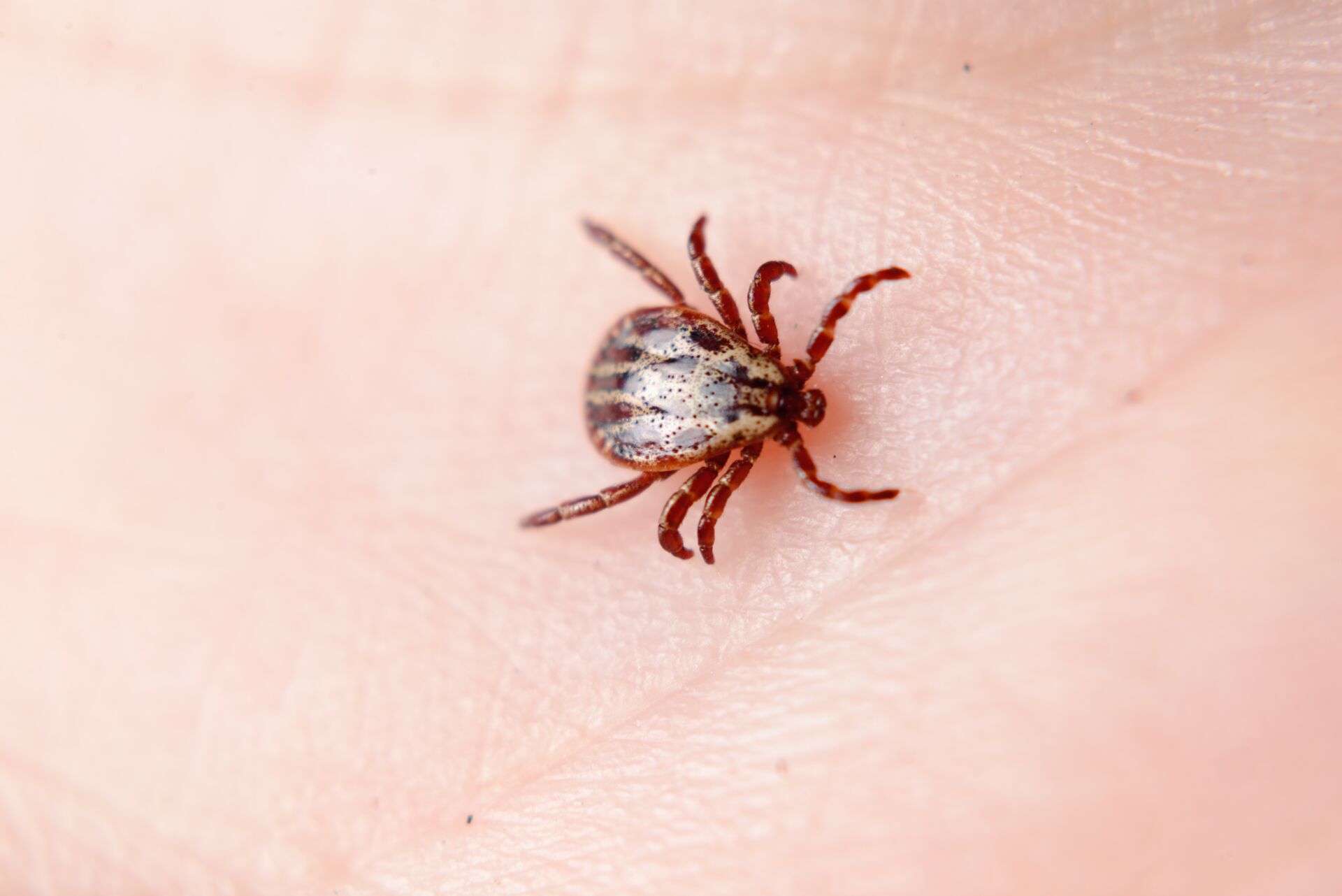
What Are the Best Ways to Stay Bug-Free Without Spooking Deer?
The key to being a successful and bug-free whitetail or mule deer hunter is mastering the art of practical compromise between scent and insect control.
- Experiment with unscented repellents designed for hunters. Use DEET-free products or low-odor formulas.
- Treat your hunting clothing with permethrin, a synthetic chemical that has no odor and bonds to fabric to kill bugs on contact.
- Use camouflage mesh headnets and gloves to reduce exposed skin and keep mosquitoes from flying around your face.
- Strategically time the application of repellants by applying them to your clothing and skin well before your hunt starts so the more pungent initial odors can dissipate.
Regardless of which insect-deterrent tactic you use, maintaining wind awareness is still crucial. Set up your stalk and static position so that prevailing winds will carry your odors away from expected deer movement patterns.
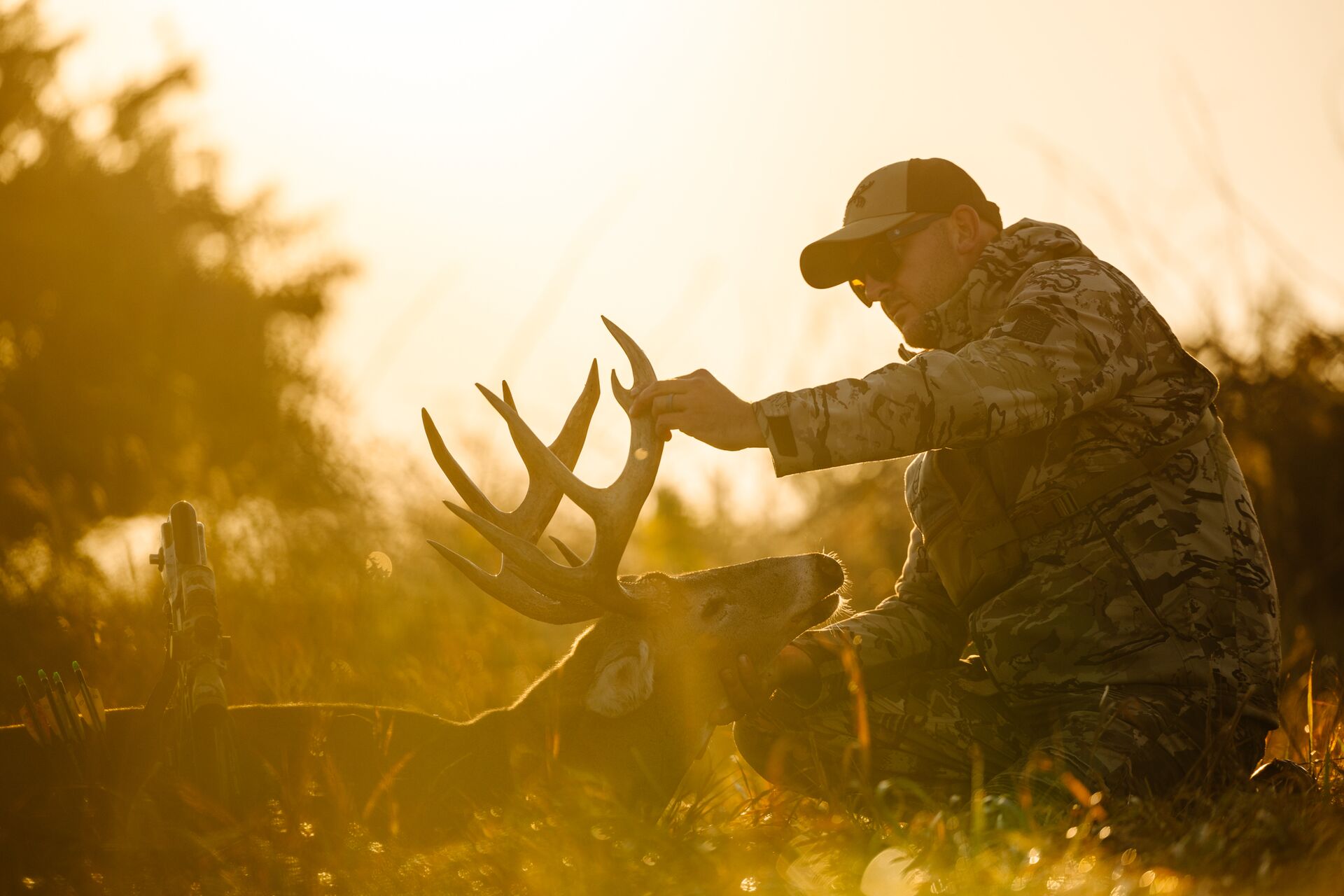
Outsmart Bugs and Bucks (and Stay Safe) When Hunting
Unfortunately, there is no magical bug-repelling elixir that deer won’t smell. However, wise product choices combined with strategic application methods can keep the insects at bay and minimize the chances of alerting deer to your presence.
What separates a successful hunt from an unsuccessful one comes down to effectively managing the details. And when it comes to hunting deer, scent control is perhaps the most essential detail to master.
Then, be sure you know how to stay safe when hunting! Learn about outdoor safety and ethical hunting practices through an online hunter education course from ilearntohunt.
Our courses help you meet your state’s specific regulations and requirements for hunter education.
So, as you prepare for an early season hunt, make sure you've taken the course for your state!

